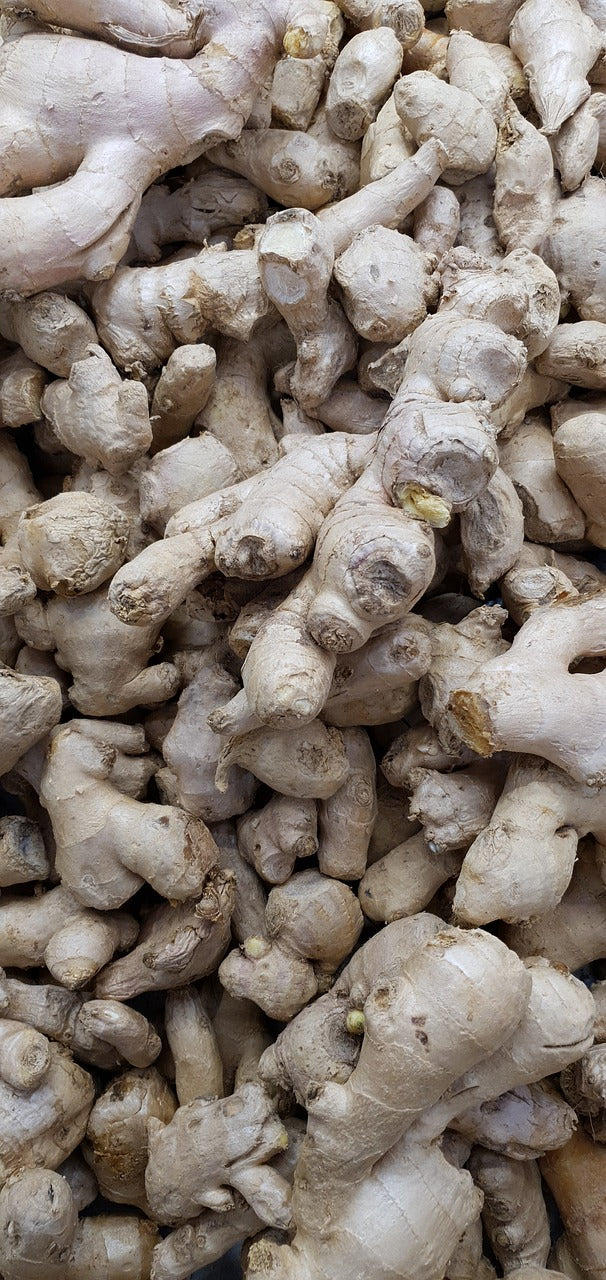
Ginger
Action à base de plantes : Stimulant, carminative, tonic, diaphoretic, diuretic.
Recherche médicale/Utilisations :
Ginger is mostly used as a carminative, often along with other herbs because of its great ability to stop griping and cramping, especially in the abdomen, intestines, urinary tract and uterus. In this action, it is more beneficial than dimenhydrinate, as a prophylaxis for nausea and vomiting of motion sickness, dyspepsia and
hyperemesis gravidarum (extended nausea and vomiting during pregnancy). It has also shown anti-ulcer qualities and significant hepatoprotective activity.
The anti-inflammatory activity of ginger is as functional as ASA, without the analgesic activity. In Chinese medicine Ginger is used in rheumatism and arthritis. The action Ginger has on reducing migraines seems to follow from the same action. Its mechanism here seems to be slightly different than Feverfew, as Ginger does not inhibit serotonin release as Feverfew does.
Ginger has been shown to lower fever, most likely due to the inhibition of prostaglandin synthesis. It does not lower temperature in individuals that have no fever. On the other hand, we can find Ginger to be quite warming if given when a person is cold. Studies have suggested it is the pungent agent that stimulates the thermoregulatory receptors. This should only account for short term action though. Long-term effect appears to be related to inhibiting serotonin-induced hypothermia. Ginger is also known to stimulate cytokine secretion by human peripheral blood mononuclear cells.
In China, fresh ginger is a clinically effective treatment for rheumatism, acute bacterial dysentery, malaria, and orchitis (inflammation of the testicles). Ginger's beneficial effect on colic and flatulence has been well known for centuries. Ginger oil has been shown to increase capillary permeability and to induce phagocytic activity in the capillary endothelium, similar to histamine.
Additional Information
Part Used: Root (rhizome)
